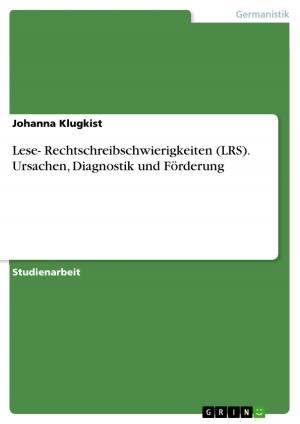Mastering Pronunciation of a Foreign Language: For Independent Language Learners
Nonfiction, Reference & Language, Foreign Languages| Author: | Ronald Tichenor | ISBN: | 9781370317424 |
| Publisher: | Ronald Tichenor | Publication: | September 14, 2017 |
| Imprint: | Smashwords Edition | Language: | English |
| Author: | Ronald Tichenor |
| ISBN: | 9781370317424 |
| Publisher: | Ronald Tichenor |
| Publication: | September 14, 2017 |
| Imprint: | Smashwords Edition |
| Language: | English |
In my ebook Mastering Pronunciation of a Foreign Language : For Independent Language Learners, I look at the problem of learning spoken language a little differently than they do in most published courses. And I try to solve it in two specific ways.
One is that I break down spoken language into two fundamental features that you need to identify and begin to use in order to pronounce it correctly and speak with a good accent.
Every language course introduces you to the first of those fundamental features, but they don't really follow up on it as they should.
And the second? They hardly ever even mention it!
It's not necessary to understand this feature in order speak a language at a basic level, but it's absolutely essential to develop a really good accent. Understanding this can give you the key to improving pronunciation to master-level.
The other way I approach learning spoken language is that I view learning to speak as actual physical training. When you learn a new language, you must use your mouth, lips, tongue, cheeks, heck even your breathing differently in order to speak properly.
You can't simply be introduced to a few new sounds of a language and then speak it like a native. It just doesn't work that way. There are tons of subtle differences in many of the sounds you must make when learning a language. And putting it all together to try to sound good requires a lot of focused effort.
Most courses will tell you that, but won't give you a real path to do it.
In my ebook, I outline a three-step process that does just that. I show how to use two simple techniques that allow you to work toward an outstanding accent that will impress the natives and stun other learners.
Disclaimer - I said simple because these techniques are simple to understand. But they're not easy. They require a lot of work. But if you've read this far, I know you're the kind of serious language learner that can benefit from this!
Anyone can learn how to do these techniques and you can use them throughout your study of a language and beyond.
And if you've already studied a language before and just want to fix your flawed accent? You can do that, too.
The beauty in this process is that it can be used alongside any other course that you're studying from. In fact, it isn't even a course so much as a complementary process of techniques that anyone can use with just about any language at any point in their learning process.
The upshot is that if you understand these basic principles, and use these techniques, you can develop your pronunciation more efficiently and faster than the typical approach.
It won't cost more than a few extra dollars at most and you can even do this right from the beginning of studying a language.
In fact, you will have even better results if you do this from the beginning!
Using these techniques results in improved pattern recognition with regards to word order, verb forms, and noun cases, easier vocabulary recognition and memorization, better parsing skills, and improved overall listening skills.
Mastering your pronunciation as you learn the language makes the entire language learning journey a better and more successful one.
In my ebook Mastering Pronunciation of a Foreign Language : For Independent Language Learners, I look at the problem of learning spoken language a little differently than they do in most published courses. And I try to solve it in two specific ways.
One is that I break down spoken language into two fundamental features that you need to identify and begin to use in order to pronounce it correctly and speak with a good accent.
Every language course introduces you to the first of those fundamental features, but they don't really follow up on it as they should.
And the second? They hardly ever even mention it!
It's not necessary to understand this feature in order speak a language at a basic level, but it's absolutely essential to develop a really good accent. Understanding this can give you the key to improving pronunciation to master-level.
The other way I approach learning spoken language is that I view learning to speak as actual physical training. When you learn a new language, you must use your mouth, lips, tongue, cheeks, heck even your breathing differently in order to speak properly.
You can't simply be introduced to a few new sounds of a language and then speak it like a native. It just doesn't work that way. There are tons of subtle differences in many of the sounds you must make when learning a language. And putting it all together to try to sound good requires a lot of focused effort.
Most courses will tell you that, but won't give you a real path to do it.
In my ebook, I outline a three-step process that does just that. I show how to use two simple techniques that allow you to work toward an outstanding accent that will impress the natives and stun other learners.
Disclaimer - I said simple because these techniques are simple to understand. But they're not easy. They require a lot of work. But if you've read this far, I know you're the kind of serious language learner that can benefit from this!
Anyone can learn how to do these techniques and you can use them throughout your study of a language and beyond.
And if you've already studied a language before and just want to fix your flawed accent? You can do that, too.
The beauty in this process is that it can be used alongside any other course that you're studying from. In fact, it isn't even a course so much as a complementary process of techniques that anyone can use with just about any language at any point in their learning process.
The upshot is that if you understand these basic principles, and use these techniques, you can develop your pronunciation more efficiently and faster than the typical approach.
It won't cost more than a few extra dollars at most and you can even do this right from the beginning of studying a language.
In fact, you will have even better results if you do this from the beginning!
Using these techniques results in improved pattern recognition with regards to word order, verb forms, and noun cases, easier vocabulary recognition and memorization, better parsing skills, and improved overall listening skills.
Mastering your pronunciation as you learn the language makes the entire language learning journey a better and more successful one.















